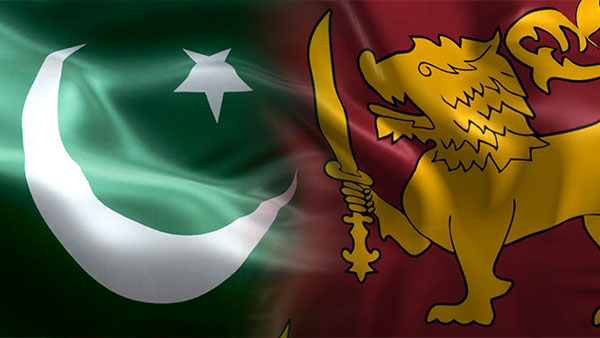Pakistan and Sri Lanka have agreed to strengthen collaboration in marine and coastal tourism, recognizing the sector’s potential to drive sustainable economic growth, create jobs, and deepen regional connectivity through their rich maritime heritage and biodiversity.
The understanding was reached during a meeting between Federal Minister for Maritime Affairs Muhammad Junaid Anwar Chaudhry and Sri Lankan Minister for Transport, Highways and Urban Development Bimal Niroshan Rathnayake, who called on him in Islamabad.
Minister Chaudhry proposed a comprehensive plan to expand marine tourism linkages between the two countries, suggesting joint tourism routes, coastal tour packages, and enhanced ferry services connecting major seaside destinations. He also called for cultural exchanges and coordinated marketing campaigns to promote shared marine and cultural attractions.
Highlighting the global significance of ocean economies, Chaudhry noted that around 3.0 billion people worldwide depend on marine industries such as fisheries and tourism, most of them living in developing countries. Citing recent international studies, he said coastal and marine tourism currently supports about 6.5 million jobs, with the ocean economy projected to grow by 3.5 percent annually. By 2030, he added, marine and coastal tourism is expected to account for up to 26 percent of the total value generated by the global ocean economy.
Pakistan, he said, is actively working to develop its 1,000-kilometer coastline through new initiatives promoting harbour cruises, recreational fishing, yachting, and maritime heritage tourism—particularly in Gwadar and Karachi—as part of its broader blue economy diversification strategy.
Sri Lankan Minister Rathnayake welcomed the proposal, noting that Sri Lanka’s advanced marine tourism infrastructure could complement Pakistan’s emerging coastal tourism market. He said cooperation between the two nations could increase regional tourist flows, boost mutual investments, and showcase their shared cultural and natural marine assets.
Rathnayake added that Sri Lanka has recently launched a Marine Tourism Roadmap aimed at promoting eco-friendly tourism zones and upgrading infrastructure in coastal regions such as Kalpitiya, Trincomalee, Mannar, and Jaffna.
Minister Chaudhry observed that the rising demand for organized tour packages from Pakistan to Sri Lanka highlights the need for better connectivity and strategic collaboration. “Partnership in marine tourism can help both countries harness their coastal strengths and generate sustainable economic benefits,” he said.
Both sides agreed that deeper cooperation in the marine tourism sector could create new employment opportunities, advance marine conservation, and support sustainable coastal development, ultimately contributing to the expansion of the regional blue economy.




